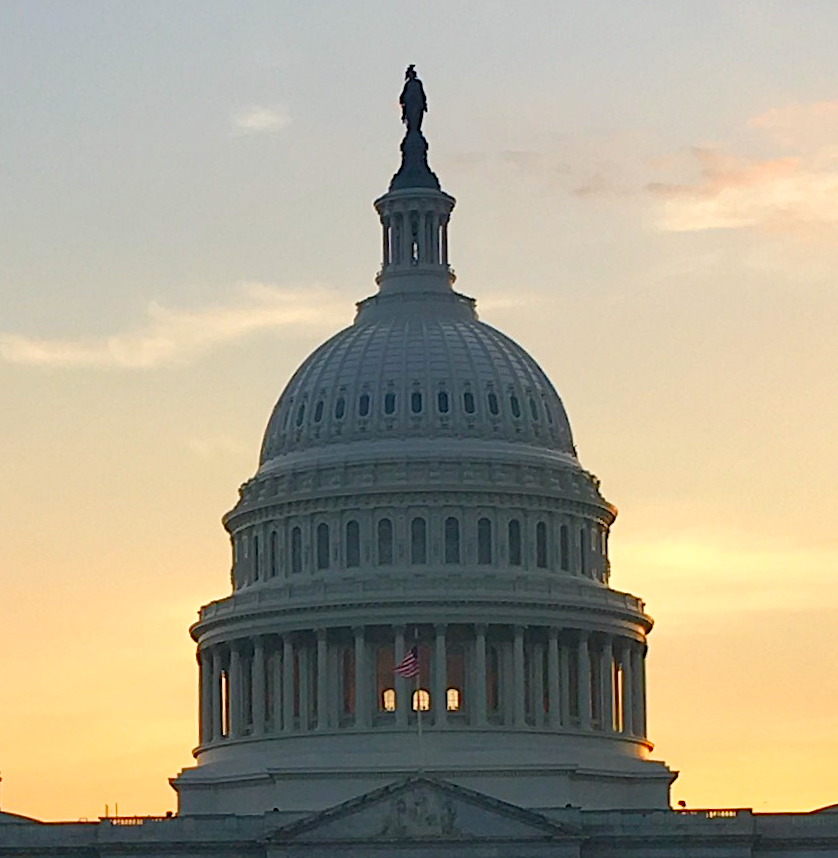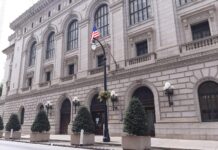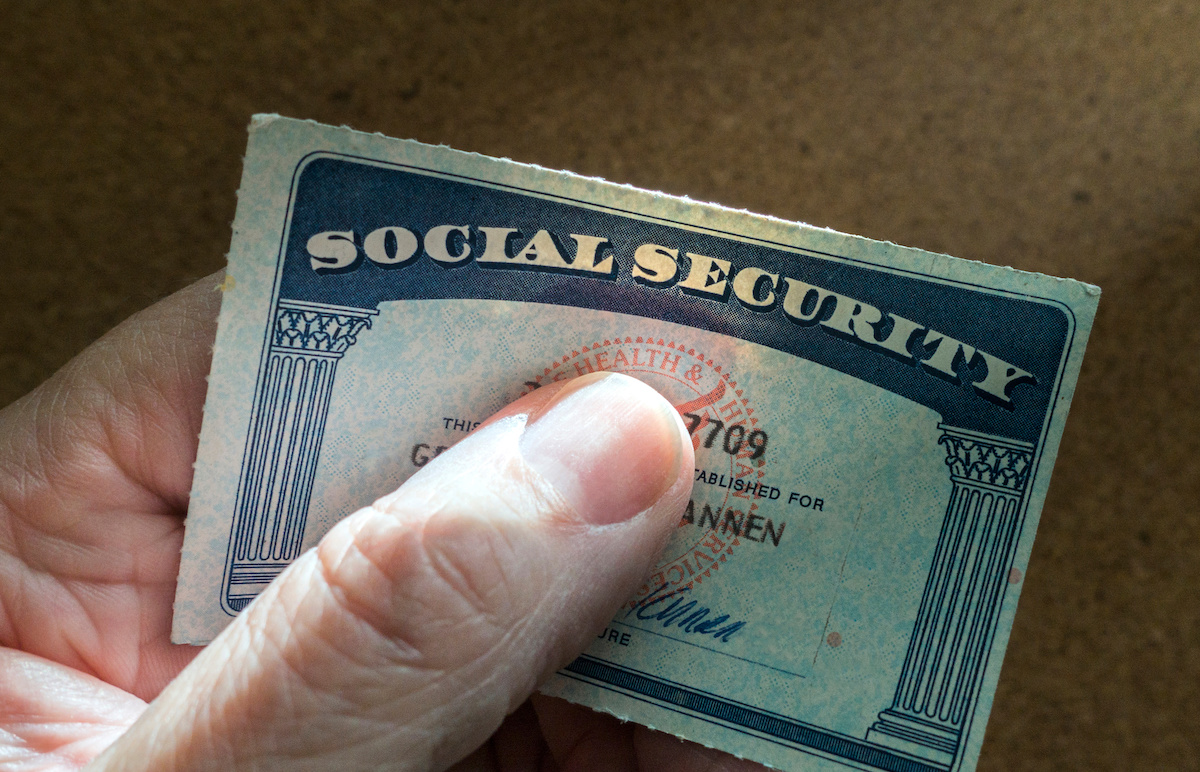
WASHINGTON—To say that 2020 has been an eventful year in the nation’s capital is an understatement.
Amid a global pandemic, a bitter race for the presidency and protests over police brutality, news in Washington never let up. As the year winds to an end, let’s take a look back at the moments of most drama, controversy, shock and sadness that headlined an exhausting 2020 in D.C.
Speaker of the House Nancy Pelosi tears up the president’s speech during the State of the Union
Following President Donald Trump’s impeachment by the U.S. House in December 2019, he was invited by Pelosi to give his State of the Union address on the House floor on Feb. 4.
Before his speech, he snubbed a handshake from Pelosi and then delivered a speech that was full of falsehoods, such as his success in expanding Medicaid.
After the president finished his remarks, and while his back was turned to her, Pelosi ripped up his speech several times. When asked by reporters why she did it, she said: “Because it was the courteous thing to do, considering the alternative. It was such a dirty speech.”
The U.S. Senate acquits Trump on both of his impeachment charges
The House impeached Trump on two charges, the first on abuse of power, which alleged that Trump pressured leaders in the Ukraine to investigate his political rivals to benefit his reelection. The second article of impeachment was obstruction of Congress and alleged the president directed offices in the executive branch to not comply with subpoenas issued by the House.
On Feb. 5, the Senate voted. The first article on abuse of power was rejected 48-52, and the second article on obstruction of Congress was also rejected, 47-53.
Two presidents have been impeached and acquitted in the Senate, Andrew Johnson and Bill Clinton, but no president has been removed from office. Richard Nixon faced impeachment inquiries, but resigned from office before being impeached.
Insider stock trading scandal rattles Congress
During the beginning of the coronavirus pandemic, multiple senators were accused of violating the STOCK Act by selling off their stocks after a closed door Senate meeting on the threat posed by COVID-19 before the stock market crashed on Feb. 20.
The Justice Department opened an investigation on March 30 into Sens. Richard Burr (R-N.C.), Dianne Feinstein (D-Calif.), Jim Inhofe (R-Okla.), David Perdue (R-Ga.) and Kelly Loeffler (R-Ga.).
On May 26, the Department of Justice ended its investigation of all senators except for Burr. He’s been served multiple warrants and the FBI seized his phone and communications with his stock broker.
Burr informed Senate Majority Leader Mitch McConnell (R-Ky.) that he would temporarily step down as chair of the Senate Intelligence Committee until the investigation was over.
Trump instructs law enforcement to use tear gas on protestors so he can have a Bible photo op
As peaceful social justice protests against police brutality in the Black community were underway in Lafayette Park across from the White House on June 1, the president directed law enforcement to use tear gas and other riot tactics to clear the crowds.
He and other senior officials wanted to have their photos taken in front of Ashburton House, the parish house of historic St. John’s Episcopal Church, and show they were not threatened by the protests.
The president held up a Bible in front of the church for the photo op. The move was widely criticized as infringing on the First Amendment, freedom of speech and freedom to assemble.
Civil liberties groups filed a federal lawsuit against the president and Attorney General William Barr for violating the constitutional rights of the protestors.
The nation mourns the death of a civil rights icon, Congressman John Lewis
U.S. Rep. John Lewis, the son of sharecroppers, Georgia Democrat and champion of the Voting Rights Act, died July 17 from complications of pancreatic cancer. He was 80.
He led one of the most famous marches during the civil rights movement, the 1965 Bloody Sunday march across the Edmund Pettus Bridge in Selma, Ala.
Lewis penned an essay to be published in the New York Times on the day of his funeral that called for the continued fight for voting and civil rights.
“Ordinary people with extraordinary vision can redeem the soul of America by getting in what I call good trouble, necessary trouble,” he wrote. “The vote is the most powerful nonviolent change agent you have in a democratic society.”
Activists organize George Floyd March on Washington
Thousands of people marched to the Lincoln Memorial to push for police reform and racial equality following the death in Minneapolis of George Floyd, who was killed by a police officer who kneeled on his neck.
The event, called the Commitment March, honored the Aug. 28, 1963 March on Washington, when Martin Luther King Jr. gave his “I Have a Dream” speech.
Leaders from Black Lives Matter, King’s children and other civil rights leaders spoke in front of the Lincoln Memorial to demand justice for police brutality against the Black community.
Supreme Court Justice Ruth Bader Ginsburg dies
A champion for women’s equality, Justice Ruth Bader Ginsburg died in her home in Washington on Sept. 18 after complications of metastatic cancer of the pancreas. She was 87.
She served on the Supreme Court for 27 years and was a feminist icon. She was the first woman and Jewish person to lie in wake in the U.S. Capitol. Her death set off a contentious Supreme Court nomination and confirmation process just months before the presidential election.
A week after her death, the president announced the nomination of Judge Amy Coney Barrett. The Senate confirmed Barrett a month later, securing a conservative Supreme Court for Republicans.
Trump is hospitalized with COVID-19
The president was hospitalized at Walter Reed National Military Medical Center in Maryland on Oct. 2 after he and first lady Melania Trump tested positive for COVID-19.
A few days earlier, the White House had held an event in the Rose Garden, where most attendees were maskless, to announce the nomination of Barrett to the Supreme Court. Several attendees also tested positive.
The president was given an experimental antibody treatment and remained at Walter Reed for several days before returning to the White House.
Democratic candidate Joe Biden wins the 2020 presidential election
The Associated Press on Nov. 7 called Joe Biden the victor in the presidential race after declaring him the victor in his native Pennsylvania. Due to the pandemic, many voters chose to mail in their ballots, causing some delays in counting votes.
The victory also meant that Biden’s running mate, Sen. Kamala Harris of California, would become the first Black and South Asian woman to serve as vice president when they are inaugurated on Jan. 20.
Trump has continued to make baseless allegations about fraud in the election and his legal team has filed numerous unsuccessful lawsuits.
Members of Congress start getting COVID-19 vaccines
After a year of the coronavirus raging and 320,000 deaths in the U.S., the FDA approved a vaccine from Pfizer-BioNTech.
As the vaccine was distributed to health care and front line workers, members of Congress also took their first doses of the vaccine to build public trust. Pelosi and McConnell received their first dose of the vaccine Dec. 18.
Biden also got the first round of the vaccine, Dec. 21 on live TV.






